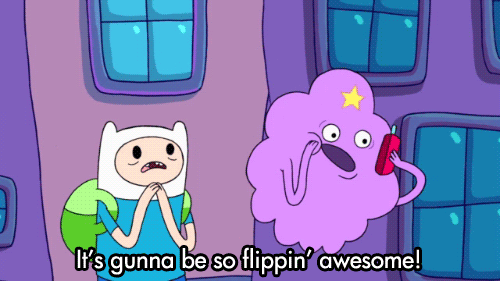Five and half years ago, my husband and I bought our house. The inside was nice, yes, but it was the backyard we were excited about. We had big plans, HUGE.
We were going to start a garden.
It would be the awesomest, most beautiful garden ever, producing large, ripe fruits and vegetables, humming with bees. People were going to pin pictures of our garden all over pinterest. We were going to have so much food we’d fill our pantry with canned goods. Our neighbors would all look upon our yard and know where they would go in the event of a zombie apocalypse.
Years and years before that, I had a different grand plan.
I was going to write a book.
And yes, it was going to be the best book ever. I had no idea of the steps between writing “The End” and getting it on the shelves, but somehow, a divine finger was going to part the clouds, point to my book, say, “This one,” and it would become a bestseller.
Alas, as might be expected when pairing lofty goals and boundless optimism, reality and my expectations did not align.
Take, for instance, growing oranges. I live in California. People plant orange trees on the side of the road, neglect them, and they still drop oranges like they’re waste products and not food. Oranges squished beneath car tires and wayward feet on the sidewalk. So it should have been easy, right?
We killed our first orange tree.

We’d removed a sapling from our lawn and replaced it with an orange tree. At the hardware store, our hopes were stoked by little trees in little pots bowed beneath the weight of their oranges. We watered our tree, we fertilized it, and the thing just up and died. We couldn’t figure it out.
So we bought another one and put it in the same spot. This would work, surely?
This time, as the leaves began to wither and drop, we took pity on the poor thing and posted it on craigslist for a person with a greener thumb to care for.
We started to research and talk to others. Turns out that our house sits on a bunch of clay, and putting an orange tree straight into the ground here, where the water would sit about its roots, was a death knell for a tree that liked to be soaked and then dried.
We still lusted after oranges, but it was going to take a lot more work than we’d first anticipated.
So…putting a tree in our lawn was out of the question. But we could put a tree in a raised area, and fill it with soil that would drain. We had raised circular beds against our fences, but they weren’t tall or wide enough to accommodate an orange tree. First step? Making them bigger. My husband did the painstaking work of clearing the area around the beds, moving the cement blocks to a wider radius, and topping them off with another layer of blocks. Second step? Purchasing loose soil in bulk.
We spent a weekend carting that dirt around and filling up our new garden areas.
At last, it was ready.

Secure in our new knowledge, and eager to reap the fruits (ha ha, get it?) of our labor, we shelled out the big bucks and bought a more mature tree. It was larger than those puny hardware store orange trees, so we were bound to get oranges the first year.
When the tree bloomed and the oranges began to form, we were ecstatic.
And then these little green oranges started to drop off of the tree. What was happening? Our tree was bigger, in a better spot, and we were giving it so much more attention than the tiny hardware store trees got. Why did they produce oranges and ours dropped them?
IT WASN’T FAIR.
We began to go a bit mad. Were we watering the tree too much? Too little? How much did our neighbors water their trees? Their trees had fruit. Was our tree missing a nutrient? Our neighbor gave their tree extra iron, would extra iron help? Was it too windy?
The next year, the green oranges grew a little bigger. Again, they all fell off.
By this time, we began to feel a bit resigned. Well, it had happened last year. What had we expected, really? The leaves were green, the tree was growing—we’d taken good care of it. Something was going on here, some nebulous “other” that we couldn’t control.
In the distant past, my seventh-grade-self finished a 30K manuscript. It was the tale of a horse and a falcon charged with finding a new king for their magical land (of which the horse was the only non-magical inhabitant). By the end, the horse got his powers, and the journey made him into the king his country needed.
It was terrible, and adorable, and really really bad.
I started and stopped several other manuscripts through the years. I wrote a short story that I thought was amazing, sent it to a magazine, and received my first bitter taste of rejection. I did a lot of research, joined writing groups, critiqued others’ writing and used what I learned to examine mine. I completed another manuscript, which I truly thought was The One. It garnered over eighty agent rejections before I trunked it.
I began again.
And in the year leading up to my first story sale, I went a bit mad. What was I not doing that everyone else was doing? How could I break through? If so-and-so published author stood on their head and hummed “Mary Had a Little Lamb” should I also do so? I still wrote, but I grew resigned, my bright and fluffy dreams of insta-bestseller dulled.
Some people out there could write things and sell them. I was not, apparently, one of those people.
And then, after all those years, I suddenly was.
The third year after planting our tree, the oranges stayed on. They grew orange, and large. We held our breaths and researched when to pluck them.
We plucked them.
They were delicious.





